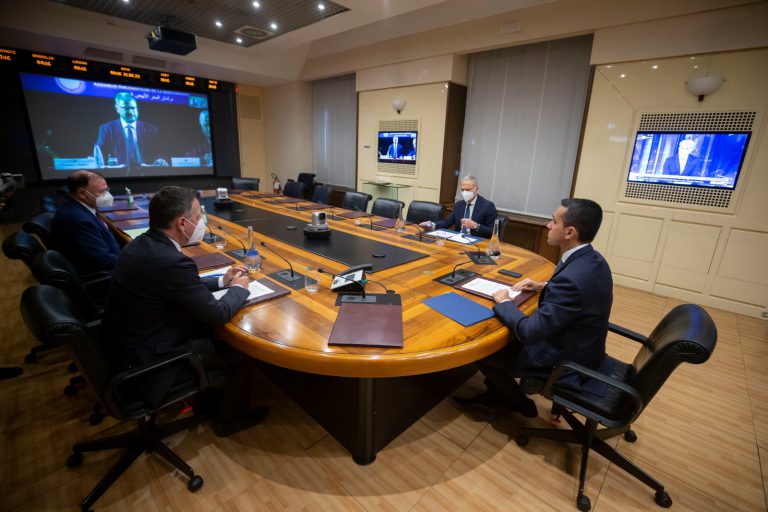The turmoil in the Mediterranean is a challenge that strikes to the very core of Europe.
The terrorist threat and the flow of migrants arriving on our borders are two questions that we must keep separate, but which both put us to the test.
They place the values on which the European Union was founded in question. They challenge our cultural identity and political cohesion. They call upon us to govern the challenges, not to submit to them.
These will be the central issues of the “Rome Med Dialogues” opening this Thursday, 10 December 2015.
Italy’s role as a natural crossroads of diplomatic initiatives on the Mediterranean will be reinforced by the summit on Libya which, following an Italian-American proposal, will take place in Rome on 13 December. It will be further strengthened by the meeting of the anti-Da’esh coalition taking place in Rome in the following weeks.
After the dramatic attacks in Paris, the “Rome Med Dialogues” will start with the most urgent challenges facing us: the defeat of Da’esh, the launch of a political transition in Syria and the birth of a government of national accord in Libya.
But the goal of the Conference is to cast our eyes beyond the crisis and to consider how to lay the foundations for a regional order. Difficult as it may seem, we must begin, as of now, to imagine a “Peace of Westphalia” for the “global Mediterranean”.
Peace for a region whose geopolitical boundaries have expanded to include new maritime corridors reaching to the Gulf of Aden, and land corridors, in African territories where institutional fragility creates a favourable climate for the trafficking of human beings.
In the Italian vision, this embryo of a new regional order could rest on three pillars.
First, the need to avoid repeating the mistakes of the past.
The West has always cultivated the illusion of “lightning fast” wars, only to suffer the consequences for years and years. Today, to combat Da’esh, the military option is necessary, but it is not sufficient to bring about its definitive defeat.
The experience of recent years suggests that helping to bring about a sustainable peace in the Middle East is a task for the regional powers.
It can no longer be the United States, individual European countries or Russia, and tomorrow perhaps China, to draw out the new borders from above. Nor can they guarantee, by themselves, the security of the region.
The international community continues to be crucial, both to contribute to security and to encourage the regional actors to play a more cooperative and less conflictual role.
The second pillar is to reactivate the regional dialogue.
Without chasing after utopias, the agreement on Iran’s nuclear capability, the oil price and the common strategy against Da’esh could create new openings for a gradual process of confidence-building measures between the countries of the region.
Substantial progress in the work on Syria, which began in Vienna, would be particularly significant.
The third, and last, pillar of the new regional order must be built with the courage to go against the flow by drawing up a positive agenda for the “global Mediterranean”, without given way to pessimism.
Beyond the divisions, beyond the conflicts, lie opportunities.
For Italy too. I am thinking here of the effects of the Iranian nuclear agreement, with Tehran’s economy which, without sanctions, could grow by 5%. I am thinking of the widening of the Suez Canal, and the resulting significant increase in goods traffic in the Mediterranean. I am thinking of the reflections of African development on the region, with growth rates of 5.3% forecast in 2017-20. I am thinking of the impact of the new Chinese silk road, which will end in the Mediterranean. And I am thinking of the prospects for the region’s energy market thanks, for example, to Eni’s discoveries in Egypt.
The history of the Mediterranean is a meeting of cultures and faiths. And a history of pluralism. The Rome conference can help meet the challenge with new ideas, and become an important annual meeting to reflect on the region.
We must have a very clear idea of the what is at stake: not a transient emergency, but the very future of Europe. For this, the Mediterranean calls us into play. It cannot become the site of the West’s reluctance to act.


